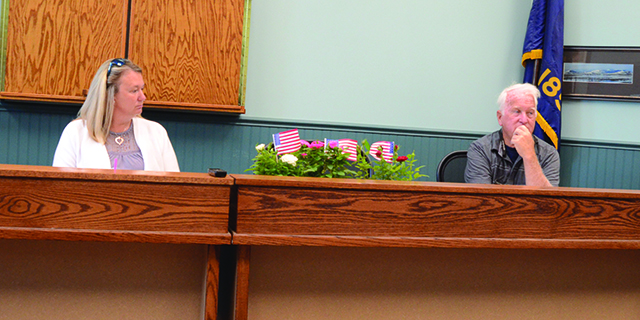‘Ag gag’ laws are a mistake
Published 12:26 pm Tuesday, March 29, 2016
Eastern Oregon is well endowed with farmers, ranchers and family foresters who their neighbors know to be among the most conscientious stewards of the land. You don’t take on a life of long hours and uncertain rewards raising crops, animals and trees — or stay in these endeavors — if you hate the natural world and all that lives there.
What is true on the local scale — that farmers and foresters are natural conservationists worthy of steadfast support — is not universally true on the larger industrial scale.
Trending
There are irresponsible operators in every economic pursuit and this is also true of agriculture. Some large feedlots are cruel to animals. Some ranchers overgraze public lands. Some farmers over-apply chemicals or over-medicate animals destined for grocery stores.
Wonderful people but a little tone deaf when it comes to public relations, agricultural producers in some states are incensed by the efforts of a few activists to bring attention to instances of malpractice and misbehavior in the industry. This has led to efforts by ag groups and supportive legislators in places like Idaho to initiate “ag gag” laws, described in our sister publication Capital Press as prohibiting hidden-camera filming and obtaining employment under false pretenses.
A story in the Capital Press last Friday reported on just how big a blunder these laws have been in terms of confidence in farmers. A study of U.S. consumers by the University of British Columbia shows that such heavy-handed efforts to keep agricultural practices under wraps has the opposite of the desired effect.
Instead of shielding squeamish consumers from agriculture’s facts of life, ag gag laws evidently leave the public assuming there is something to hide. The trust rating for farmers drops 20 percent across the political spectrum among members of the public when ag gag laws are put into play, the university researchers found.
“There are reputational consequences. People are likely to be left with a bad taste in their mouths when they’re made aware of them (ag gag laws),” a study author said.
No industry would be happy to be targeted by “secret agents” posing as visitors or employees, but agriculture occupies a central position in people’s lives, providing sustenance for purchasers and their children. Heightened scrutiny is to be expected.
Trending
Oregon state lawmakers clearly should resist the siren call of ag gag laws. Agricultural producers in our states, who enjoy public support and positive reputations, can do far better by continuing to reach out to consumers with truthful information, while working to further enhance animal husbandry and environmentally friendly practices.
The vast majority of farmers are heroes with nothing to hide. They should act accordingly.








